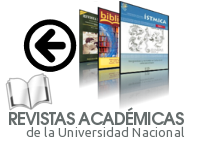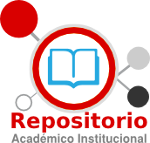A thought that transcends. Peter Seixas and his contributions to the development of Historical Thought
DOI:
https://doi.org/10.15359/rp.28.2Keywords:
Social Studies, Historical Thinking, History Teaching, History, Peter Seixas, Didactics of HistoryAbstract
In the early 1980s, Denis Shemilt proposed that history should be taught so that students can understand the past through the particular methods and perspectives of the discipline. His ideas were pioneering and triggering, so that in the future and in different latitudes, research groups are formed with the purpose of developing proposals that allow clarifying what these particular methods and perspectives are. In this line, Peter Seixas since the 1990s, has been one of the researchers who has contributed the most to clarifying these issues, leading the "historical thinking" research group in Canada and being a benchmark for other research. That is why, in this paper, it is proposed to reflect on the contributions of Peter Seixas' thought for the understanding of the teaching of history, of what it is and what it implies to think historically.
References
Barton, K. y Levstik, L. (2004). Teaching History for the common good. Mahwah, New Jersey. Lawrence Erlbaum Associates.
Carr, E. (1978). ¿Qué es la historia? Editorial Seix Barral.
Collingwood, R. (1952). La idea de la historia. Fondo de cultura económica.
Chávez, C. (2020). Formación del pensamiento histórico en estudiantes de formación inicial docente. Un estudio de caso en universidades chilenas. [Tesis doctoral, Universidad Autónoma de Barcelona]. https://ddd.uab.cat/pub/tesis/2021/hdl_10803_671066/cacp1de1.pdf
Chávez, C. (2021). Un modelo para el desarrollo del pensamiento histórico. Clío & Asociados. La Historia Enseñada, (33), 51-71. https://doi.org/10.14409/cya.v0i33.10355
Chávez, C. (2023). Planificación de la enseñanza para el desarrollo del pensamiento histórico. Íber, (111), 34-38
Gadamer, H. (1993). El problema de la conciencia histórica. Madrid: Editorial Tecnos.
Hartley, L. P. (1953). The Go-Between. London Hamilton.
Hassani, I. (2005). Pensée historienne et apprentissage de l`historie. L`Harmattan.
Körber, A. (2008). From Historical Consciousness to Historical Competencies—And Beyond? The Development of German History Didactics. Paper presented at the Historicising the Uses of the Past. Oslo.
Lee, P. y Ashby, R. (2000) Progressión in Historical Understandig among Students Ages 7-14. En Stearns, P, Seixas, P y Wineburg, S (eds.) Knowing, Teaching Learning History. University Press.
Lévesque, S. (2008). Tinking historically: Educating students for the twenty-first century. University of Toronto Press.
Martineau, R. (1999). L`Historie á lècole. Matière à penser… L`Harmattan.
Peck, C. y Seixas, P. (2008). Benchmarks of Historical Thinking: First Steps. In Canada Journal of Education, 31(4), 1015-1038.
Rüsen, J. (1992). El desarrollo de la competencia narrativa en el aprendizaje histórico. Una hipótesis ontogenética relativa a la conciencia moral, Propuesta Educativa, 7, 27-37.
Rusen, J. (2004) Historical Consciousness: Narrative Structure, Moral Function, and Ontogenetic Development. In Seixas, P. (Ed) (2004). Theorizing Historical Consciousness. University of Toronto Press (pp.63-85).
Santisteban, A. (2010). La formación de competencias de pensamiento histórico. Clío & Asociados. La historia enseñada, 14, 34-56.
Seixas, P. (2006) Benchmarks of historical thinking: a framework for assessment in Canada en Seixas, P. (2008). “Scaling Up” the Benchmarks of Historical Thinking A Report on the Vancouver. Meetings, February 14-15. University of British Columbia.
Seixas, P. (2008a). Scaling Up” the Benchmarks of Historical Thinking A Report on the Vancouver. Meetings February 14-15. University of British Columbia.
Seixas, P. (2008b). Foreword. In Levesque, S. Thinking Historically, educating students for de Twenty-Firts Centuty. University of Toronto Press.
Seixas, P. (2011). Hermeneutics, history and memory. Paedagogica Historica: International Journal of the History of Education, 47(3), 443-446. DOI: 10.1080/00309230.2010.531529Seixas, P. (2015). Translation and its Discontents: Key Concepts in English and German History Education, Journal of Curriculum Studies, 1-13. https://doi.org/10.1080/00220272.2015.1101618
Seixas, P. (2017a). Historical Consciousness and Historical Thinking. In Carretero, M., Berger, S & Grever, M (Eds). Palgrave Handbook of Research in Historical Culture and Education, pp. 59-72.
Seixas, P. (2017b). A Model of Historical Thinking, Educational Philosophy and Theory 49(6), 593-605. https://doi.org/10.1080/00131857.2015.1101363
Seixas, P. (2021). Stéphane Lévesque and Jean-Philippe Croteau. Beyond History for Historical Consciousness: Students, Narrative, and Memory. Toronto: University of Toronto Press, 2020. 216 pp. History of Education Quarterly, 61(1), 115-118. https://doi.org/10.1017/heq.2020.74
Seixas, P., Gibson, L. & Ercikan, K. (2015) A design process for assessing historical thinking. The Case of One-Hour Test. En Seixas, P y Ericikan, K (Eds) (2015) New Directions in Assessing Historical Thinking. Routledge (pp. 102-117).
Seixas, P. y Morton, T. (2013). The big six: Historical thinking concepts. Nelson Education.
Seixas, P. y Peck, C. (2004). Teaching historical thinking. In A. Sears & I. Wright (Eds), Challengens and Prospects for Canadian Social Studies (pp. 109-117). Pacific Educational Press.
Seixas, P., Peck, C y Poyntz, S. (2011). “But we didn't Live in Those Times”: Canadian Students Negotiate Past and Present in a Time of War. Education as Change, 15(1), 47-62. https://doi.org/10.1080/16823206.2010.543089
Shemilt, D. (1987). El proyecto “Historia 13-16” del “Schools Council”: pasado, presente y futuro. En La geografía y la historia dentro de las Ciencias Sociales: hacia un currículum integrado. Ministerio de Educación y Ciencia (pp. 173-208).
Stearns, P., Seixas, P. and Wineburg, S. (2000). Knowing, Teaching, and Learning History: National and International Perspectives. New York University Press.
Van Drie, J. y Van Boxtel, C. (2008). Historical Reasoning: Towards a Framework for Analyzing Students’ Reasoning about the Past. In Educational Psychol, 20(2), 87-110.
Wineburg, S. (1991). Historical problem solving: A study of the cognitive processes used in theevaluation of documentary and pictorial evidence. Journal of Educational Psychology, 83, 3-87.
Wineburg, S. (2001) Historical Thinking and Other Unnaturals Acts: Charting the Future of Teaching the Past. Temple University Press.
Downloads
Published
How to Cite
Issue
Section
License

This work is licensed under a Creative Commons Attribution-NonCommercial-ShareAlike 4.0 International License.
Los autores que publican en esta revista están de acuerdo con los siguientes términos:
a) Los autores conservan los derechos de autor y garantizan a la revista el derecho de ser la primera publicación del trabajo bajo una Licencia Creative Commons Atribución-NoComercial-CompartirIgual 4.0 Internacional (https://creativecommons.org/licenses/by-nc-sa/4.0/) que permite a otros compartir el trabajo con un reconocimiento de la autoría del trabajo y la publicación inicial en esta revista (componente BY o atribución). Coincidente con la política de Acceso Abierto, no se podrán hacer usos comerciales de los contenidos publicados por esta revista (componente NC). Se permitirán las obras derivadas (remezcla, transformación o creación a partir de la obra original) siempre y cuando sean distribuidas bajo la misma licencia de la obra original (componente SA).
b) Los autores pueden establecer por separado acuerdos adicionales para la distribución no exclusiva de la versión original de la obra publicada en la revista (por ejemplo, situarlo en un repositorio institucional o publicarlo en un libro), siempre y cuando: a) sea reconocida la publicación original en esta revista (componente BY); b) no se haga uso del material de reuso con propósitos comerciales (componente NC); c) el material de reuso sea distribuido bajo la misma licencia de la obra original (componente SA).
c) Se permite y se anima a los autores a difundir sus trabajos electrónicamente (por ejemplo, en repositorios institucionales o en su propio sitio web) antes y durante el proceso de envío, ya que puede dar lugar a intercambios productivos, así como a una citación más temprana y mayor de los trabajos publicados (Véase The Effect of Open Access) (en inglés).


_11.55_.09_a_._m_._.png)
_1.34_.01_p_._m_._2.png)
_9.45_.02_p_._m_._.png)




_2.23_.09_p_._m_._.png)
_2.35_.17_p_._m_._.png)

